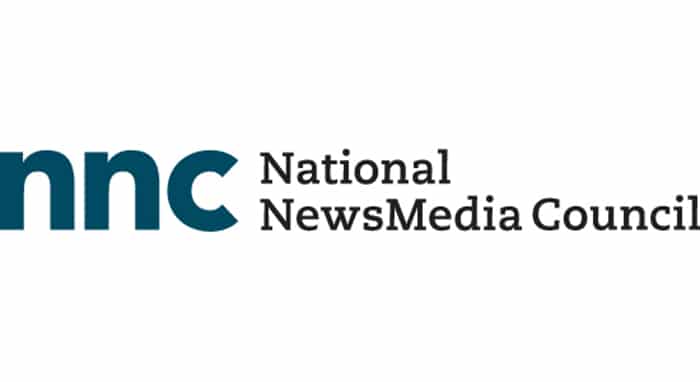
The National NewsMedia Council mediated and found that corrective action was taken to address a complaint about accuracy in a July 24 opinion article, “Finally,” published in The Chatham Voice.
The opinion article criticized the perceived inaction of various levels of government to address concerns about well-water quality in Chatham-Kent, but expressed hope that a recently appointed panel of experts would “finally” address the issue.
Medical Officer of Health for Chatham-Kent, Dr. David Colby, filed a complaint with the NNC alleging inaccuracy and bias in the article. The complainant took issue with statements in the article that characterized various levels of government, including himself as the medical officer of health, as ignoring the concerns of residents.
In particular, the complainant argued that the statement, “our medical officer of health shouldn’t blow off the concerns of more than 189 well owners,” was inaccurate in its characterization of the issue. He stated that the figure was inaccurate, as was the implication that he failed to conduct his due diligence contrary to his statement that he had performed an extensive analysis of the issue. The complainant also alleged that the article speculated without reasons for sediment in the well water.
The Chatham Voice responded by stating that it had been following and reporting on the story since 2017 and that it recognized the contentious and emotional nature of the issue. It stated that its reporting was informed by numerous interviews and visits to the properties of well owners.
It also stated that the phrase “blowing off” was based on statements from individuals who had contacted Mr. Colby with their concerns about the quality of their water.
The news media organization cited several other sources that informed their reporting, including interviews with professionals in the fields of geology and environmental science.
The NNC supports the wide latitude afforded to opinion writers to express unpopular views or raise pointed questions. Bias in an opinion article is to be expected, as the purpose of opinion writing is to express a point of view on an issue. That said, the NNC is also of the view that opinion writing is subject to widely accepted journalistic standards, including a commitment to accuracy and appropriate attribution.
In reviewing the statements in question, the NNC noted that it was unclear what the “189” figure was in reference to, and therefore a reader may be left to assume that 189 people or more raised their concerns with the medical officer of health and were subsequently dismissed or rebuked. The NNC did not identify evidence in the article to support this claim.
While an opinion article may offer unpopular perspectives on an issue, statements must be based on verifiable facts. Attribution provides essential context about the origin of information reported in a story and allows a reader to assess the source and credibility of that information.
The NNC appreciates the fact that the news media organization had followed this story for some time. However, a reader may only encounter an individual article and is not necessarily familiar with prior reporting. Appropriate context should therefore be presented within the article itself, which may include links to prior reporting.
Upon being notified of the lack of clarity and context in the final statement of the article, the news organization amended the sentence to read, “All levels of government should be concerned when it comes to drinking water, including our own medical officer of health, as there are well owners who feel no government official is doing much, if anything, for them.”
The news organization also provided links below the story to several letters to the editor that supported statements that residents were frustrated with how various levels of government had handled the issue of well water quality.
The amended sentence now reads as a characterization of opinions expressed by individuals in the community. Moreover, the addition of links to letters to the editor provides context and further evidence to support the statements in the article.
In light of the above, the NNC considers the changes to the article appropriate corrective action to ensure accuracy and provide context in an opinion article.






